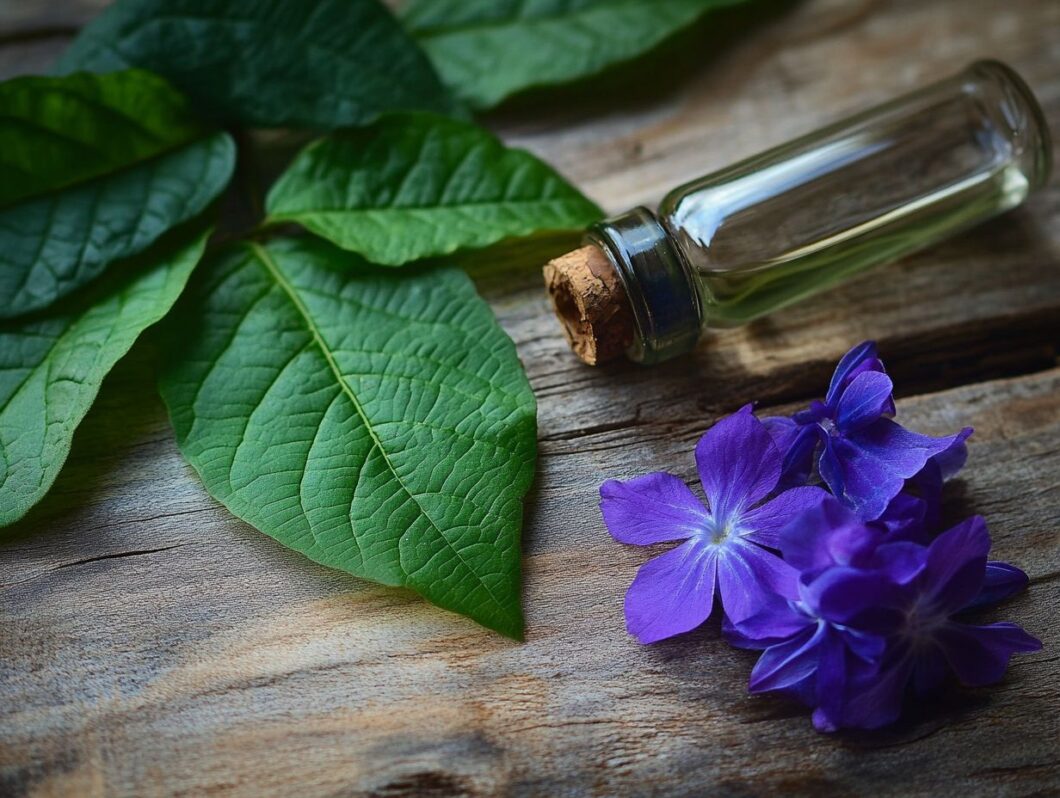Bakuchiol is rapidly becoming a popular natural alternative to retinol, attracting the attention of skincare enthusiasts who seek youthful, radiant skin without the harsh side effects often associated with retinol.
Derived from the seeds and leaves of the Psoralea corylifolia plant, this remarkable ingredient provides a range of benefits that closely resemble those of traditional retinol, but with additional advantages.
In this article, I will delve into what bakuchiol is, how to effectively incorporate it into your skincare routine, its safety profile, and how it compares to retinol for different skin types.
Whether you are a seasoned skincare professional or just beginning your journey, you will discover valuable insights to enhance your regimen and achieve your desired glow.
Key Takeaways:
What is Bakuchiol?
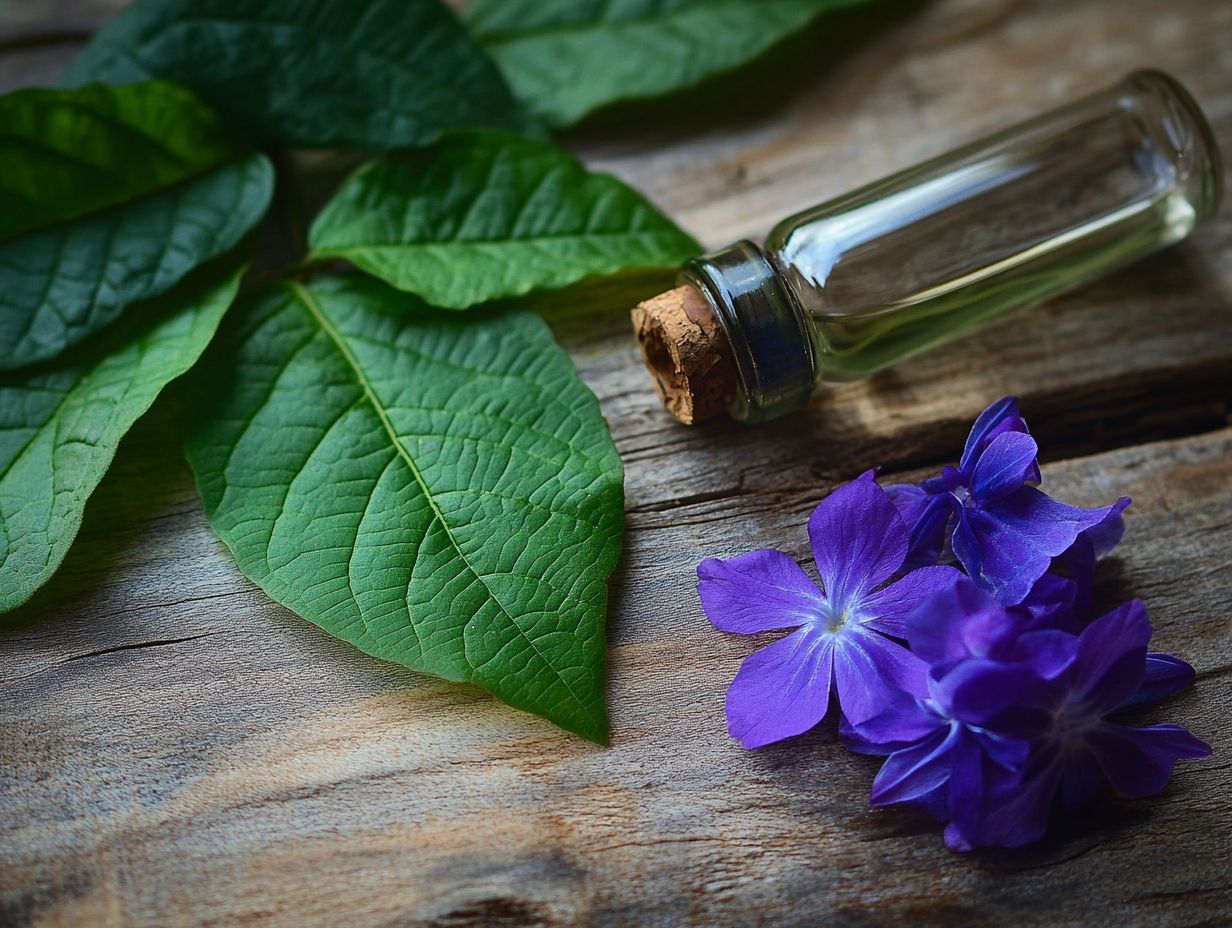
Bakuchiol, which I derive from the seeds and leaves of the Psoralea corylifolia plant, is increasingly recognized in the skincare industry as a natural alternative to retinol. It offers a range of anti-aging benefits while being suitable for various skin types.
This gentle, plant-based ingredient has a long history of use in traditional medicine practices, such as Ayurveda and Chinese medicine, spanning several centuries.
With its antioxidant properties and ability to enhance skin elasticity, I view Bakuchiol as a key ingredient in contemporary skincare routines, providing an effective solution for those looking to improve skin texture and reduce the appearance of fine lines without the harsh side effects commonly associated with vitamin A derivatives.
The Benefits of Bakuchiol
I recognize that Bakuchiol presents numerous benefits that are gaining acknowledgment in the skincare industry.
Its anti-aging properties are particularly impressive, as they can rival those of retinol while significantly reducing the risk of irritation. This makes Bakuchiol an outstanding option for addressing a variety of skin concerns and accommodating different skin types.
Similarities to Retinol and Unique Advantages
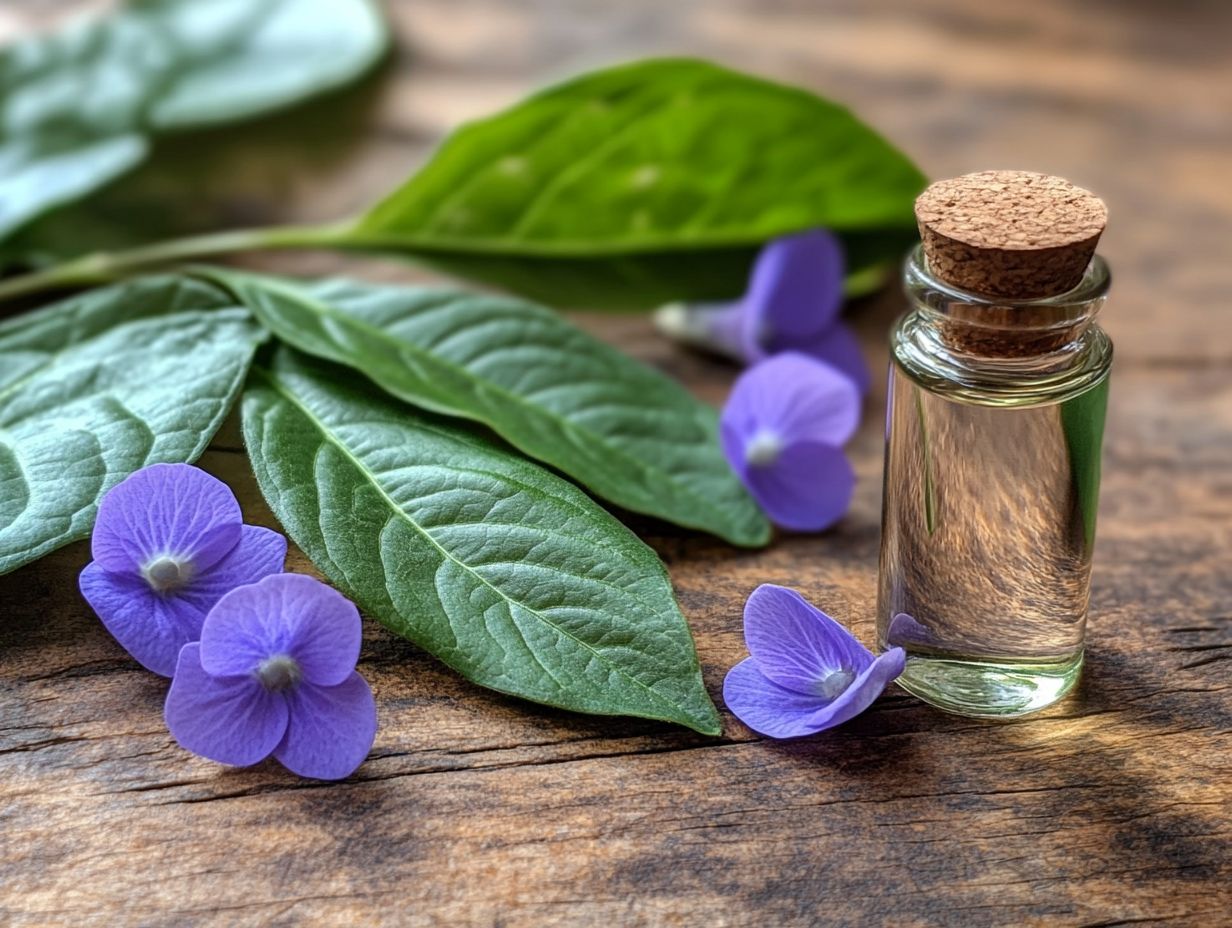
Both Bakuchiol and retinol are well-regarded for their anti-aging benefits; however, I find that Bakuchiol stands out as a gentler alternative. It offers similar results in promoting skin elasticity and reducing fine lines without the common side effects often associated with traditional vitamin A derivatives.
This remarkable quality makes it an appealing option for individuals with sensitive skin or those who are prone to irritation. Dermatological studies have supported the notion that Bakuchiol can improve skin texture and tone as effectively as retinol, which has contributed to its growing popularity within the skincare community.
Additionally, its anti-inflammatory properties help to calm the skin, making it suitable for a broader demographic. As more consumers seek gentle yet effective alternatives in their beauty routines, Bakuchiol is gaining attention not only for its similarities to retinol but also for its unique advantages, ultimately reshaping preferences in anti-aging skincare.
How to Use Bakuchiol
Incorporating Bakuchiol into my skincare regimen is both effective and straightforward.
I can utilize various application techniques and select recommended products that are designed to maximize its benefits while ensuring compatibility with different skin types and concerns.
Application Techniques and Recommended Products
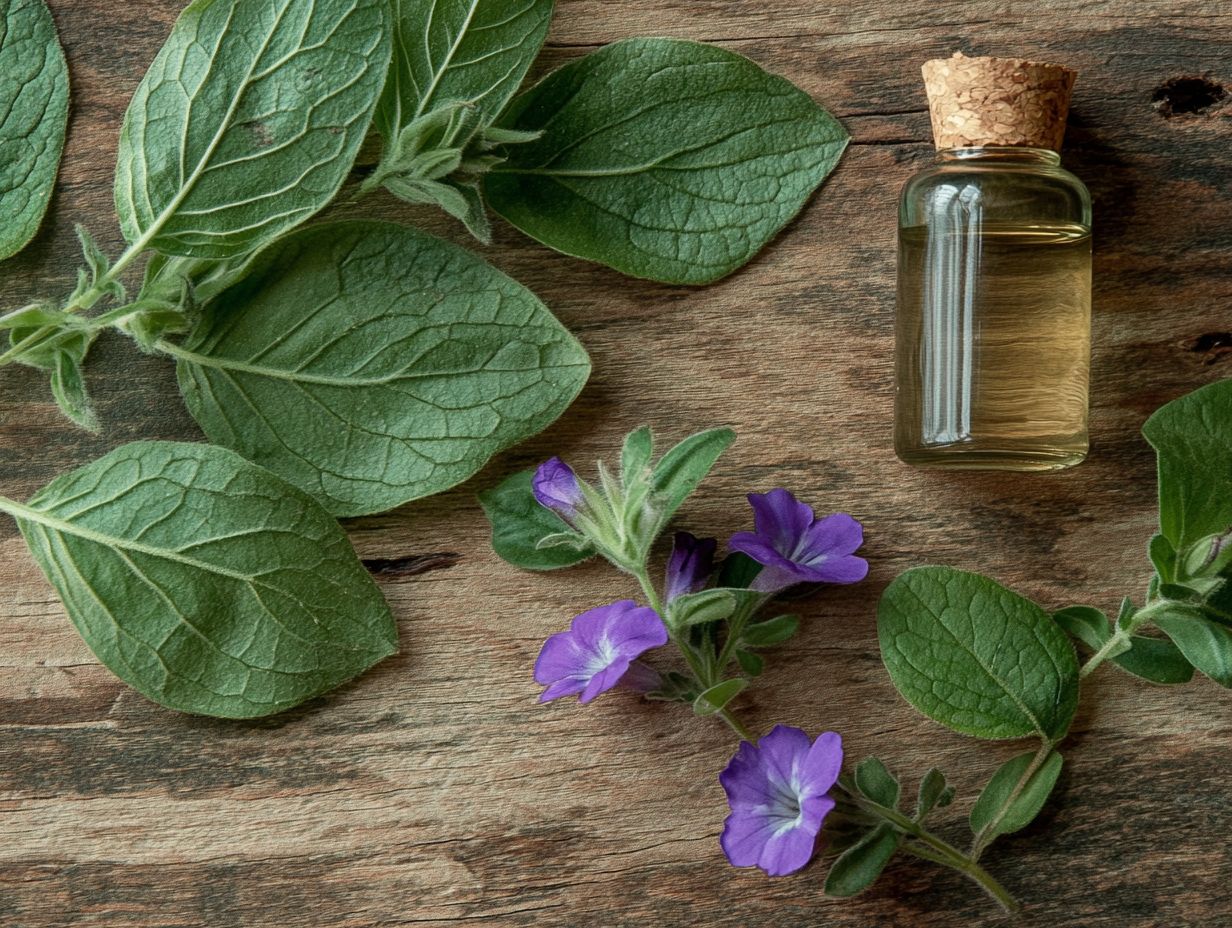
To effectively harness the benefits of Bakuchiol, I can employ various application techniques, whether through serums, creams, or oils, allowing for seamless integration of this powerful ingredient into my existing skincare routine.
For those aiming to enhance their routine, I have the option to apply Bakuchiol as a standalone treatment or combine it with other active ingredients like hyaluronic acid and vitamin C for added hydration and antioxidant protection.
A Bakuchiol-infused serum, particularly one featuring a blend of squalane and shea butter, offers deep nourishment while promoting a more youthful complexion. Alternatively, I might consider using a cream that combines Bakuchiol with peptides to specifically target fine lines and improve skin elasticity.
With different formulations available, I can select products that cater to my skin type, ensuring I fully experience the remarkable advantages of this plant-based retinol alternative.
Safety and Side Effects of Bakuchiol
While I recognize that Bakuchiol is generally considered a safe ingredient in skincare, I believe it is important to understand the potential side effects and implement precautionary measures, particularly for individuals with sensitive skin or specific dermatological conditions.
Potential Risks and Precautions
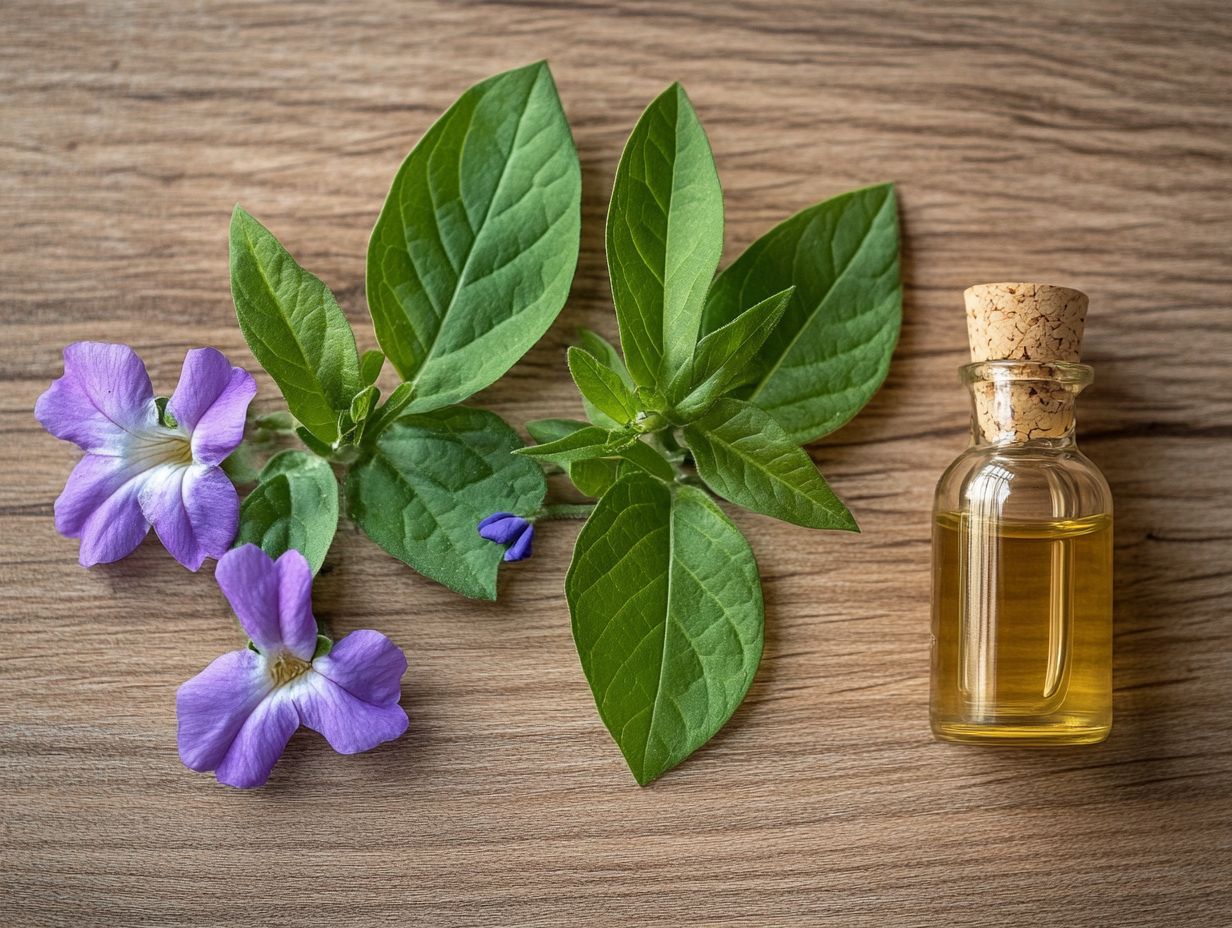
While Bakuchiol serves as a gentle alternative to retinol, I recognize the importance of being aware of potential risks and taking necessary precautions to mitigate skin irritation or adverse reactions, particularly for individuals with pre-existing skin conditions.
I understand that skin irritation can occur, especially when Bakuchiol is combined with other active ingredients like alpha hydroxy acids or vitamin C, which may increase sensitivity.
For those with sensitive skin, dermatitis, or eczema, it is prudent to approach Bakuchiol with caution. Consulting with a dermatologist before integrating this ingredient into my regimen provides tailored guidance and helps establish safe usage practices.
I always make it a priority to start with a patch test to assess skin tolerance and gradually incorporate Bakuchiol into my routine, ensuring that the integrity and comfort of my skin are maintained.
Bakuchiol vs Retinol: Which is Right for You?
Choosing between Bakuchiol and retinol can indeed be a complex decision. Both ingredients provide distinct benefits for skin health, and it is essential for me to understand their effectiveness and how they suit different skin types.
This knowledge is critical in achieving the desired results while minimizing the risk of adverse reactions.
Comparing Effectiveness and Suitability for Different Skin Types
When comparing the effectiveness and suitability of Bakuchiol and retinol for different skin types, it is important to consider how each ingredient interacts with various skin conditions and the specific needs of individuals seeking to enhance their skin health.
Retinol, a derivative of vitamin A, is well-known for its ability to combat fine lines and hyperpigmentation, making it a favored option for those with oily or combination skin. It promotes cell turnover and boosts collagen production; however, its potency can sometimes cause irritation, especially for individuals with sensitive skin.
In contrast, Bakuchiol presents a gentler alternative that offers similar benefits without the associated side effects. It is particularly well-suited for dry or sensitive skin, effectively addressing environmental damage while soothing irritation.
When selecting between these two promising ingredients, consumers should carefully evaluate their skin type and concerns—be it excessive oiliness, dryness, or sensitivity—to ensure they achieve optimal results tailored to their unique complexion.


